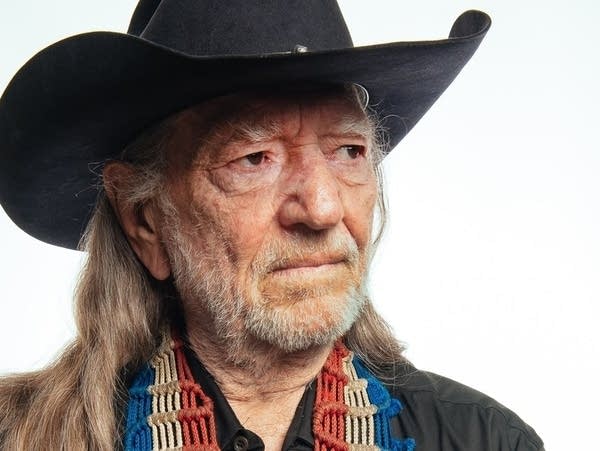A Costly Mistake in Texas

In the heart of Texas — the land of wide skies, dusty boots, and the unmistakable sound of country music — a luxury hotel made one of the most regrettable mistakes in its history. On what seemed like just another evening, a familiar figure walked into the lobby: Willie Nelson, the outlaw troubadour, the man whose music had carried the spirit of America across generations.
But the staff didn’t see a living legend. They saw only a man with long braids tucked under a worn bandana, a scuffed guitar case in his hand, and boots that had weathered more highways than the hotel’s guests had likely ever driven.
To them, he looked “too ragged, too out of place” for their marble floors and glittering chandeliers. And so, without hesitation, they turned him away.
“Sorry, sir. We’re full tonight,” the manager said coldly, his eyes betraying more judgment than apology.
The Silent Cowboy

The guests in the lobby whispered. A few gasped in disbelief. Some recognized him immediately, whispering his name under their breath. Others scoffed, assuming he was just another eccentric old wanderer drifting through town.
But Willie didn’t argue. He didn’t raise his voice, didn’t flash anger. Instead, he did what he had done all his life when confronted with small-mindedness: he smiled faintly, tipped his cowboy hat, and walked out into the Texas night without a word.
It was an image burned into memory: the quiet dignity of a man who had weathered storms far greater than a dismissive hotel clerk.
Twenty-Four Hours Later
The following afternoon, the automatic glass doors of that very same hotel slid open once more. The staff, busy with their routines, barely glanced up—until they saw who had stepped inside.
This time, Willie Nelson was not carrying his battered guitar. He was carrying something far more powerful: the legal ownership papers of the entire hotel.
The same employees who had mocked him froze mid-motion. The same manager who had dismissed him nearly dropped his clipboard. The whispers that had once filled the lobby were replaced by an eerie silence.
Willie didn’t gloat. He didn’t demand apologies. He simply walked to the front desk, placed the papers down, and leaned casually against his guitar case.
A Single Sentence

Then, in his unmistakable Texas drawl, calm and unhurried, he spoke just one line:
“Guess I fit the place now.”
It was a sentence that carried the weight of irony, justice, and country swagger all in one. The lobby, once full of judgment, erupted not in applause, not in protest, but in absolute silence.
Because there are moments when words are unnecessary, when the balance of power shifts so completely that even the proudest voices have nothing left to say.
Dignity Over Anger
What makes the story extraordinary is not just the twist itself, but the way Willie chose to deliver it. He could have stormed back in with lawyers, with media, with outrage. But that has never been Willie Nelson’s way.
Throughout his career, the outlaw legend has let action and authenticity speak louder than confrontation. Whether on stage or in life, he’s proven that the strongest statements often come not from shouting, but from quiet conviction.
By returning not as a humiliated guest, but as the new owner, he turned insult into triumph — with no need for revenge.
More Than a Hotel Story
Skeptics may question the literal truth of the tale. Did it happen exactly this way? Perhaps not. But like many stories surrounding cultural icons, its power lies less in factual precision and more in symbolic resonance.
Willie Nelson represents more than a man with a guitar. He embodies the spirit of country music itself: independence, resilience, and the refusal to be defined by anyone else’s standards.
The anecdote reflects the outlaw ethos that Willie pioneered — an ethos that challenges elitism, embraces authenticity, and reminds the world that appearances often deceive.
After all, the dusty boots that don’t seem to belong in a gilded lobby may have walked more miles of history than the polished shoes of every guest combined.
A Living Legend
At eighty-plus years old, Willie Nelson continues to tour, to sing, to bring people together through the timeless poetry of his songs. His weathered voice, his trusted guitar Trigger, and his enduring humor make him not just a musician, but a living embodiment of the American story.
The hotel story — whether apocryphal, exaggerated, or perfectly true — captures everything people love about him: humility, humor, defiance, and above all, authenticity.
It’s a parable of dignity in the face of disrespect, of quiet power in the face of arrogance, and of triumph where defeat once seemed inevitable.
Conclusion
In the end, Willie Nelson didn’t need to argue his worth. He didn’t need to remind anyone of his legendary status. He simply let his actions do the talking.
And with a single sentence — “Guess I fit the place now” — he transformed humiliation into legend.
It is a story that lingers like one of his songs: simple, direct, unforgettable.
Because sometimes the best revenge is not anger. Sometimes, the best revenge is ownership.